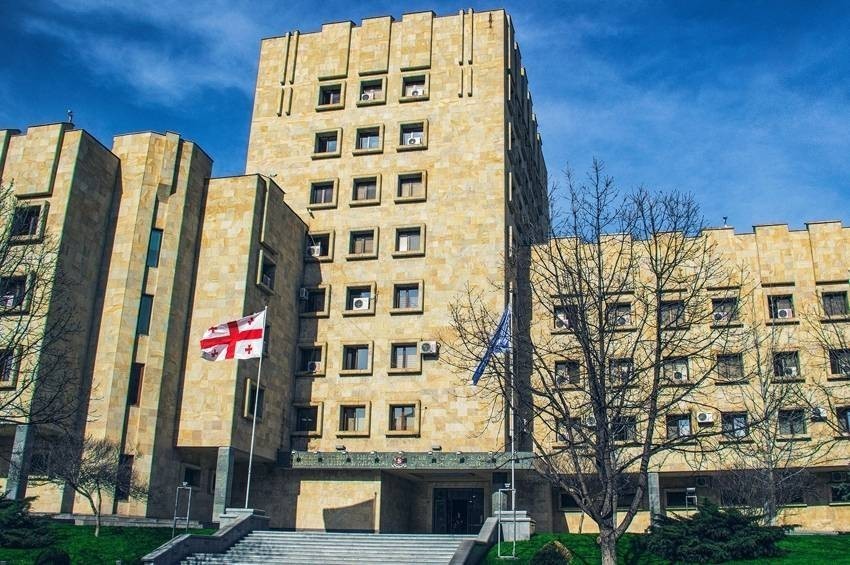საერთო ცხელი ხაზი +995 577 07 05 63


One of the underlying causes of the ongoing political crisis, among other problems, is selective justice and a politicized law enforcement system. Despite a number of reforms in recent years, the Prosecutor's Office and investigative agencies essentially are not free from partisan influences and public confidence in them is critically low. Moreover, decisions by the Prosecutor's Office in number of cases have left the impression of selective and politically motivated justice.
To date, the government has failed to carry out fundamental reforms in the prosecution system that would ensure the empowerment of individual prosecutors, transparency and accountability of the system, and mitigate the risks of political influences over the agency.[1] Recent developments and politically motivated criminal cases have once again highlighted the consequences of the failure of the past prosecutorial reforms. Against this background, it was only natural and logical that in the ongoing negotiations between the government and the opposition, the reform of the prosecutor's office was included as one of the directions of the declared 6-point plan.[2]
Now that strengthening the rule of law and the fight against politically motivated justice are crucial for the country to return to a democratic regime, reform of the prosecution system must return to the political agenda.
There is a need for fundamental reforms in the prosecution system in several directions:
Under current law, the Prosecutor General is elected by Parliament by a simple majority of votes.[3] To strengthen the independence of the system, it is imperative for the Prosecutor General to be elected by Parliament as a result of a political consensus, and that the candidates are nominated to Parliament on the basis of professional criteria (the procedure for selecting the Prosecutor General should take effect immediately and not after a term of the current Prosecutor General ends);
For the independence of the collegial body, political entities, representatives of the Governmental Cabinet, judges and lawyers should be excluded from the Prosecutorial Council. The procedure for electing prosecutor members should be revised, the degree of individual participation of each prosecutor in this process should be increased and the gender and geographical balance should be maintained.
At present, the role of the Prosecutorial Council in the system is merely formal. The Council does not have sufficient authority to ensure the independence and transparency of the system. Functions between the Prosecutor General and the Prosecutorial Council should be fairly distributed in such a way that the resolution of all issues in the system does not depend solely on the will and views of the Prosecutor General.
The fact that the prosecutorial and investigative powers are in the hands of one agency is rather problematic. It is the Prosecutor's Office that is empowered to launch an investigation into the most important types of cases, including those committed by political officials or alleged crimes involving them.[4] Accumulation of the functions of investigation and prosecution within one agency undermines the true independence of the investigation. The Prosecutor's Office should be the body the sole responsibility of which is to administer prosecution in the country.
A separate problem is that the Prosecutor's Office essentially directs and conducts the investigation of cases investigated by other investigative agencies. In such circumstances, also, the prosecutor executes the function of the head of the investigation and doing so, in essence, it overshadows the objectivity and comprehensiveness of the investigation. In such an arrangement, the function of the Prosecutor's Office to supervise the legality of the investigation is deemed meaningless, as the decisions on all important issues are already made by the prosecutor. As part of the reform of the investigative system, it is necessary to clearly separate the functions of the prosecutor and the investigator, to improve the quality of the investigation and to equip investigators with more professional independence. A key part of this large-scale reform is to reduce the influence of the prosecution on the investigation process, to strengthen the investigator's independence and accountability.
EMC calls on political groups to consider reforming the prosecution system as part of judicial reform. The process of discussing the reform should include issues that shall be able to transform the agency into a truly independent body, free from political influence.
[1]See: Prosecution Reform Assessment, available at: https://osgf.ge/prokuraturis-reformis-shefaseba/
[2] 6-point plan for political parties;; https://publika.ge/mishelis-6-punqti-ra-weria-molaparakebis-charcho-dokumentshi/
[3] Rules of Procedure of the Parliament of Georgia, Article 204
[4] Order N3 of the Prosecutor General of Georgia of August 23, 2019 on Determining the Investigative and Territorial Investigative Subordination of Criminal Cases
The website accessibility instruction